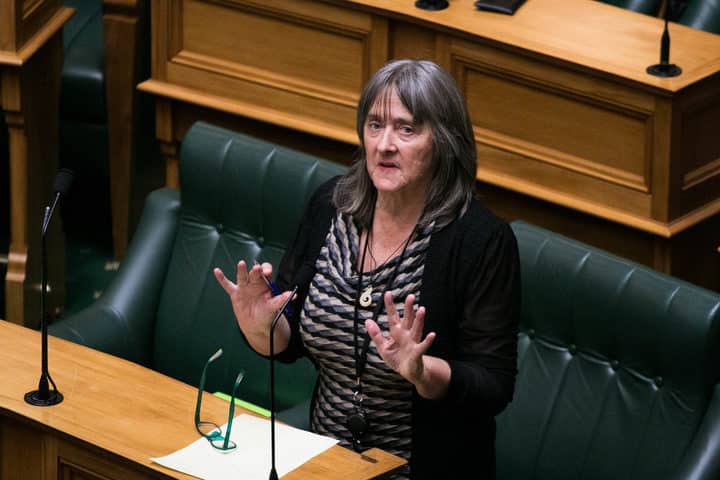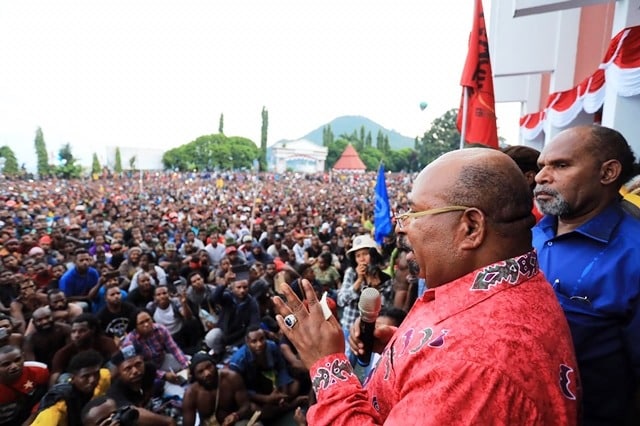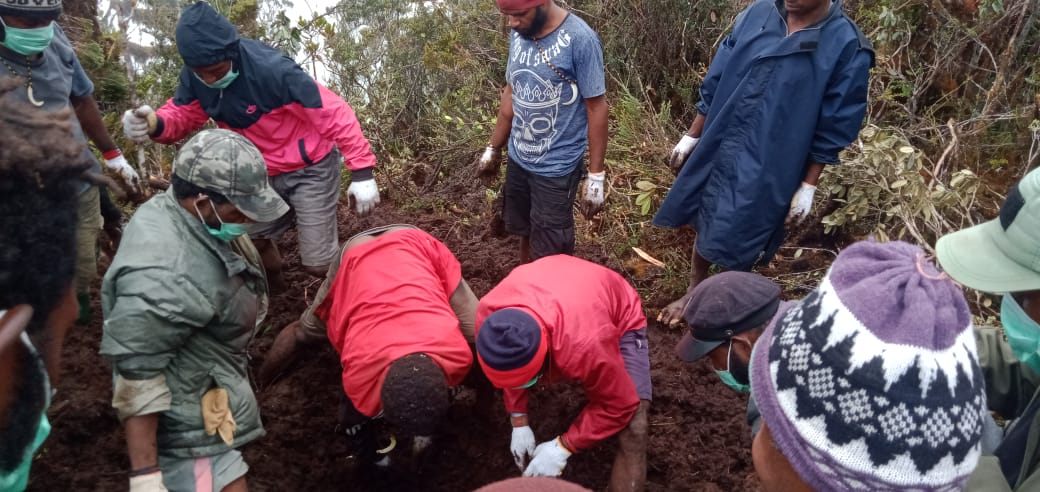
By Dan McGarry
Jayapura, Jubi – Last week’s Solomonic decision by the Melanesian Spearhead Group to cut the baby in half and boost the membership status of both the ULMWP and Indonesia is an example of the Melanesian political mind at work. Valuing collective peace over individual justice, group prosperity over individual advancement, and allowing unabashed self-interest to leaven the sincerity of the entire process, our leaders have placed their stamp on what just might be an indelible historical moment.
Last week marked the first time the indigenous people of West Papua were not entirely defeated. And that, in itself, is a victory.
Thousands gathered to celebrate in Timika and elsewhere in the western half of the island of Papua. Praise for Manasseh Sogavare’s depiction of the decision as a ‘test’ of Melanesia’s respect for human rights was widespread. Domestically, his role in the decision seems to have bolstered his standing as a statesman and leader.
But a more dry-eyed look at the process reveals a cost that will undoubtedly prove quite high for proponents of West Papuan independence. David Robie’s depiction of Papua New Guinea and Fiji’s stance on the issue as a ‘betrayal’ is starker than many others, but it’s not wrong.
Voreqe Bainimarama’s disingenuous insistence that Indonesia’s territorial integrity cannot be challenged begs the question of the legitimacy of Indonesia’s continuing occupation—one which, notably, the UN has still to answer. Likewise, Peter O’Neill’s insistence on ‘mandated’ representation for the Melanesian peoples of West Papua would be laughable if it weren’t so callous. The whole reason that the people of West Papua are seeking legitimacy through the MSG is because they are disenfranchised at home.
Sato Kilman took advantage of the clouded complexion of the domestic political scene to keep his proverbial head down, sending only a senior administrator to the Honiara summit. In fairness to him, from a tactical perspective he really had no choice. From a strategic perspective, his handling of the issue could only leave him weakened. Social media commentary in the Solomons was particularly unkind, portraying Vanuatu’s PM as lacking the nouse to stand with Mr Sogavare, letting down West Papua ‘at its hour of greatest need.’
Indonesia’s victory, especially here in Vanuatu, has clearly been sullied by the persistence of the issue, and by its ability to galvanise Melanesian public opinion regardless of political affiliation. Even those closest to Mr Kilman were forced into ‘softly-softly’ rhetoric, claiming ardent-but-pragmatic support for the people of West Papua.
In practical terms, raising Indonesia to associate member status—above that of the ULMWP—goes a long way to ensuring that the MSG will remain inert in the face of pressure to take a stand on independence. In moral terms, the extent of the ULMWP’s victory should not be underestimated.
Merely by playing a part in the conversation, they have mobilised hundreds of thousands of sympathisers at home and throughout the region. Support for independence is undoubtedly stronger and more uncompromising in Solomon Islands now, and it’s becoming more and more overt in the Papuan provinces as well. West Papua Media released a photo recently, apparently showing thousands of people in Timika celebrating the ULMWP’s ascendancy last Friday.
And, in a pattern that we’ve seen again and again, increasing oppression seems to be offering diminishing returns for Indonesia. In spite of the military’s desire to undercut Joko Widodo’s efforts to enact at least modest reforms, repressive tactics have not stopped the ever-increasing flow of coverage coming from the afflicted area. Informal and traditional media sources reported hundreds of arrests in the run-up to the vote, but that did not prevent the ULMWP from gathering what they claimed were 150,000 signatures on a petition legitimising their status as representatives. Nor did it prevent spontaneous scenes of jubilation when their membership was announced.
Equally important, Indonesia was not able to achieve an unalloyed victory in Vanuatu. In order to succeed, they needed to demonstrate that the cost of support for West Papua was losing office. While they did succeed in hamstringing one of the strongest proponents of West Papuan independence at a critical moment, the resulting furore has made the issue of independence into a political litmus test. No politician would now dare to declare anything short of unalloyed support for independence. West Papua is certain to become a core platform item in Vanuatu’s 2016 election campaign.
Arguably, West Papua is reaching a point in its political history similar to that of Black America in the years leading up to the march in Selma. Increasingly overt and untenable state violence is working against itself now. Indonesia can no longer avoid a painful but necessary confrontation with its own behaviour.
It may yet be years before a peaceful and practical resolution is even possible, let alone within our collective grasp. But Doctor King famously claimed that the arc of history bends toward justice. And here is evidence that it does.
For the indigenous peoples of West Papua, defeat is now unthinkable. And anything else, no matter how small, can only be victory. *
This article was published by pacificpolicy.org
















